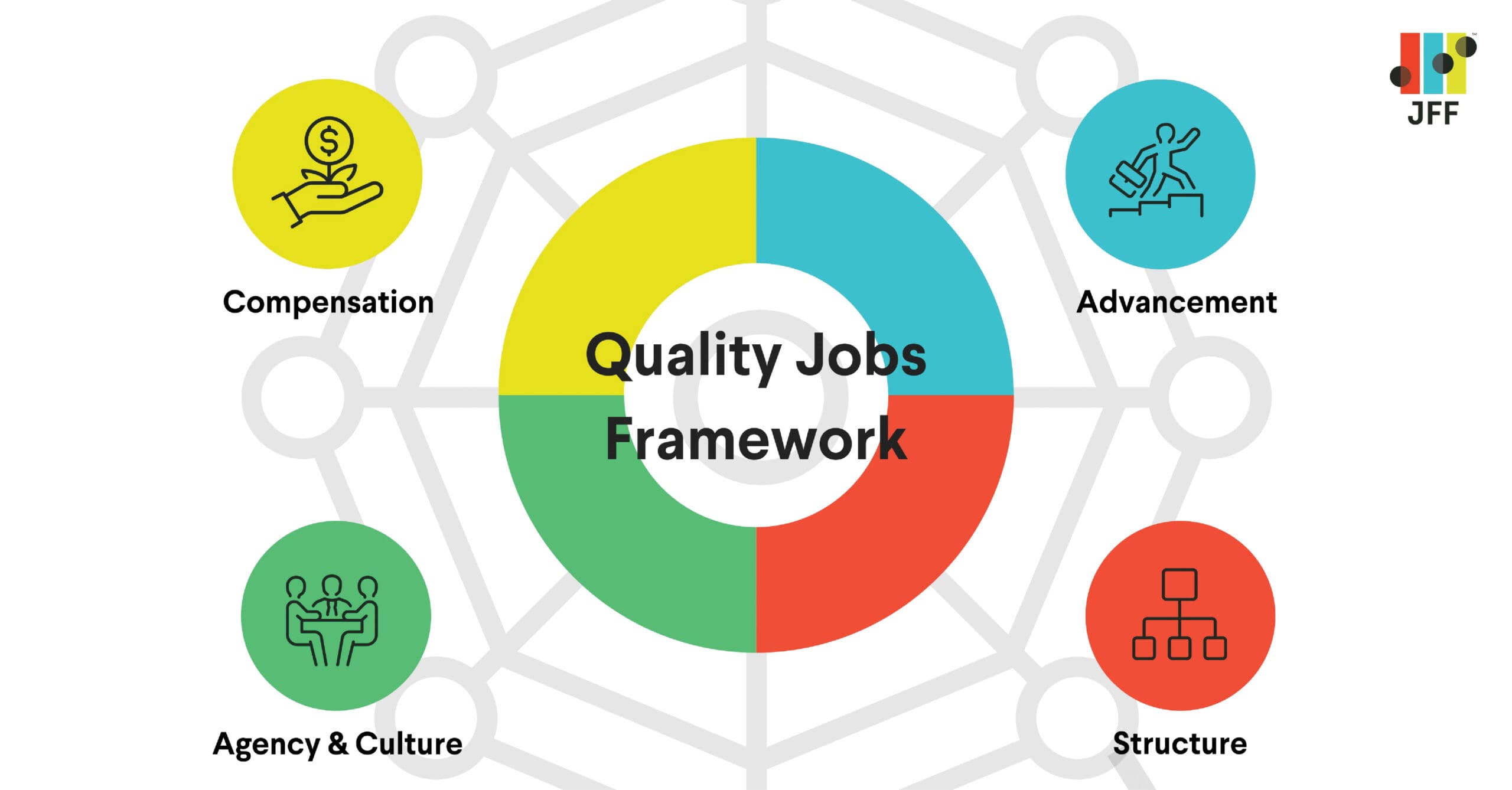I’ve been rooting for the millions of workers of the Great Resignation who left low-pay, low-quality jobs during the pandemic in search of something better. But I can’t stop thinking about the many millions more who stayed in the exact same positions—plagued by low wages, unpredictable schedules, unsupportive cultures, and limited opportunities for advancement.
Nearly 1 of every 3 working Americans earns less than $15 an hour—many without basic decent working conditions—and the reality for most won’t change anytime soon. The industries with the highest numbers of job openings, such as retail and restaurants, are those with the lowest pay and benefits, so there aren’t a lot of alternatives.
But it’s time to do more than bemoan poor job quality. Jobs for the Future (JFF) is developing a Quality Jobs Framework that identifies a comprehensive definition of a quality job, based on what’s important to workers today, and a new, modern approach to securing what all workers deserve—not just a living wage and benefits but also stability, flexibility, autonomy, and equitable economic advancement.
Rather than putting the problem on employers alone, we call on multiple stakeholders to take shared responsibility to improve job quality.
Employers clearly play a pivotal role, because they control wages, benefits, and working conditions. But policymakers, public institutions, industry groups, and workers themselves must also step up to ensure that millions more people have access to quality jobs and that more quality jobs are created.



